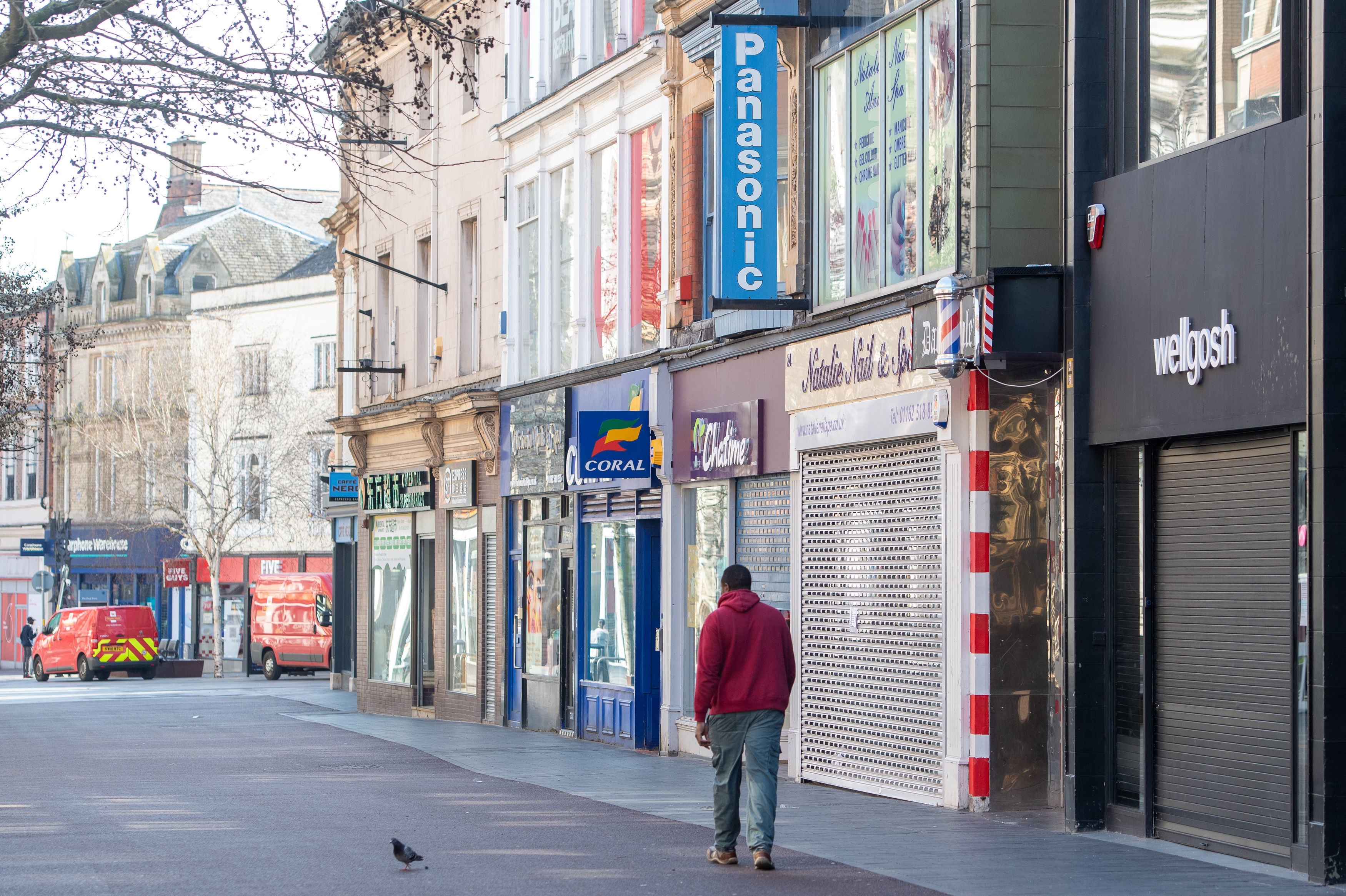What do the new coronavirus restrictions mean for the economy?
Does it mean a return to recession? Or just a slower recovery? And what are the implications for unemployment? Ben Chu looks at the evidence


Just when we thought we were out…
The UK economy had been recovering from its largest slump on modern record, growing by almost 20 per cent between April and July.
Some analysts were even talking optimistically of a “V-shaped” recovery, describing a scenario where activity bounces back almost as quickly as it had fallen.
But as of this week we have a host of new government-mandated restrictions on society to curb a concerning resurgence of coronavirus cases, including a 10pm curfew on pubs and restaurants and guidance for people to work from home if they can.
We’re told these restrictions could be in place for at least six months.
Still more significantly, the prime minister warned that if these measures don’t succeed in reducing the spread of the virus we can expect “significant” additional restrictions, seeming to hold out the possibility of another full national lockdown.
So what impact is all this going to have on the economy? Does it mean a return to recession? Or just a slower recovery? What does it mean for unemployment and living standards?
To answer the question, it’s worth breaking the impact of these new restrictions down into several likely channels.
First, there is the direct impact on affected industries. Pubs and restaurants will almost inevitably see their custom fall because of the 10pm curfew.
The hospitality sector accounts for around 2.5 per cent of the economy, which gives an indication of the amount of activity that is affected here. The industry also employs some 2.5 million people – around one in 12 jobs.
The sector had hailed the beneficial impact of the chancellor’s Eat Out to Help Out meal subsidy scheme in August, which had encouraged millions of people to visit pubs and restaurants. It may well now see that positive momentum dissipate.
Then there is the secondary impact on city centre businesses from the new official guidance to work from home – a sharp reversal of the previous advice.
The number of people working from their offices had begun to creep up this month. That trend will now inevitably be thrown into reverse, with dire consequences for those firms which are built around office workers’ custom.
There will also be a knock-on impact on train operating companies, who will see their revenues from commuters slump once again (though it’s worth bearing in mind that the government has been underwriting the operations of these companies since March anyway, with the pandemic having bankrupted the train franchise system).
But more important than these direct effects will be the broader impact on consumer sentiment.
If there were any companies out there thinking, shall we keep the office or ditch it?, this is the type of thing that maybe pushes them over to ditching it
The Bank of England noted last week that its own internal transactions data suggested household spending had returned over the summer to where it was before the crisis – a positive sign given household spending accounts for around two-thirds of GDP.
We don’t know what the psychological impact of these new restrictions will be on consumers.
One might hope that the impact will be minor relative to the much more severe March lockdown, when schools were closed down and millions were only permitted out of their homes for exercise and essential shopping.
Yet some think it could, in some ways, be worse.
“Whereas the first lockdown was bearable on the assumption that it was temporary, a second lockdown will make many people lose confidence in a recovery in the foreseeable future,” argues Douglas McWilliams, of the Centre for Economics and Business Research consultancy.
A slump in consumer confidence could hit many more sectors than just hospitality and transport.
Business investment is another avenue for harm. Capital spending by firms accounts for around 10 per cent of UK GDP and it, unsurprisingly, collapsed earlier in the year. Given companies spend in anticipation of strong future sales opportunities it’s difficult to see firms’ spending picking up this autumn if consumer spending remains subdued because of the new health restrictions.
Property developers are likely to suffer. “If there were any companies out there thinking ‘shall we keep the office or ditch it?’, this is the type of thing that maybe pushes them over to ditching it,” says Paul Dales of the Capital Economics consultancy.
In terms of the overall shape UK recovery most analysts are now revising down their forecasts.
Capital Economics thinks that the UK’s GDP could flatline in the final quarter of 2020 as a result of the social curfew and work from home requirements and that GDP will not now return to its pre-crisis level until the end of 2022 (rather than late next year).
A full lockdown would, in the eyes of some analysts, mean a return to economic contraction, rather than just a growth slowdown.
Most economists assume a weaker economy would lead to higher unemployment than otherwise, though it’s likely that the new restrictions will increase further the political pressure on the Treasury to introduce support to replace the jobs furlough scheme which is due to disappear in November.
For context, the Office for Budget Responsibility in July had a central scenario in which unemployment peaked at 3.9 million early next year (12 per cent) and a downside scenario where it hits 4.3 million (13 per cent).
Given the huge uncertainty about the public response and the progress of the virus these are inevitably only educated guesses, though it’s clear that further health restrictions on the public will be negative for the economy.
However, it’s also essential to consider the potential consequences of failing to impose these restrictions. Surging hospitalisations and deaths from a rampant virus would likely themselves inflict serious damage on consumer confidence and economic activity.
In an epidemic we should beware the assumption that there exists a clear-cut choice between protecting health and protecting the economy.
Join our commenting forum
Join thought-provoking conversations, follow other Independent readers and see their replies
Comments

Bookmark popover
Removed from bookmarks